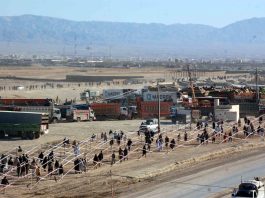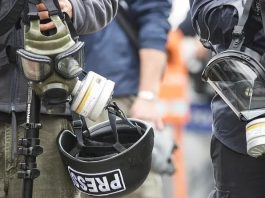Lahore: Bina Jawwad Khawaja, the wife of Pakistan’s former Chief Justice Jawwad Khawaja, wasn’t happy seeing her maid’s children doing nothing. Her own daughter, Zainab Jawwad was also unhappy at the relentless hours her own son was putting into schoolwork. By the time Zainab’s son finished his homework, it was time for him to go to bed.
“He was always busy in books. Any extracurricular activities that were taught in school were linked to some hard learning,” Zainab told Truth Tracker.
These concerns drove the family to build Harsukh School on their farmhouse at Bedian Road, on the outskirts of Lahore.
Admission is open to all children, even those from adjacent villages. Zainab took her children out of Lahore College of Arts and Sciences and put them into Harsukh.
“We had no qualms about placing our children in the same school as the children of our maids,” Zainab told Truth Tracker.
Ghania Badar, who teaches ceramics as a volunteer, also took her children out of an elite school in the capital Islamabad and sent them to Harshukh.
Bina Khawaja says the idea behind opening Harsukh was not just to give her maids’ children a better education.
Bina wanted to create an academic setting where children are taught while playing.
“(A school) where the children spend less time in the classroom and more time outdoors with nature,” she told Truth Tracker.
The school now has 55 pupils, aged from four to 11, according to Harsukh’s administration. Learning is split evenly between curricular and extracurricular activities.
The modus operandi used in Harsukh is to connect children with their surroundings.
“When children spend more time in classrooms they become kind of a stooge,” Zainab said.
“That is especially so in our environment where the teacher-student relationship has become that of marketer and clients, it results in a mind packed with facts and information.”
“We want the child to know why the rock is hard or water is fluid and the air is invisible yet tangible. We want children to become part of the universe and not somebody who is a member of it,” she stressed.
For this reason Harsukh runs many different extracurricular activities where every child from level one to level three participates.
Volunteers, all of whom are professionals, have come forward to teach the extracurricular activities.
Bina Khawaja gives lessons in classical dance. Ghania Badar, a graduate of the National College of the Arts, teaches ceramics. The Socratic discussion is conducted by Farrukh Abbass, who teaches at Lahore University of Management Sciences. Ismat Jawwad, a Beacon House University trained teacher, manages arts and crafts. Hamid, who is studying in at LUMS, conducts workshops in electronics. Usman Latif teaches string instruments. Cricket is also played once a week in the school.
Muhammad Usman, 11 years old, is one of the students who lives in school’s neighborhood Mulkhoi, a small village.
Before joining Harsukh had been studying in a local private school. The teachers at his old school used to beat him often, he said.
“Even if we committed a small mistake, we were canned severely,” Usman told Truth Tracker.
Usman said that he loved Harsukh more so because it gave him the chance to learn in an informal setting.
The school is divided into five groups.
“We have nursery, prep and levels 1, 2 and 3,” Zainab said.
“We assess a child’s class level on his intelligence and his ability to grasp knowledge. We have two sisters from a nearby village who are in level 1. One is seven years old, and the other is 11. Since the 11-year-old is not capable of handling level 2, we are keeping her in level 1.”
Harsukh’s headmaster Aftab Sheikh says only basic subjects, English, Urdu, Maths and Science are taught. The school is run on donations and each child even from a rural setting has to pay Rs 1,000 in fees.
“We are teaching religion in a very different way,” Bina told Truth Tracker.
“In Pakistan the picture of God painted in a child’s mind is one who is only capable of putting his people either in Hell or Heaven. This hampers a child’s ability to become a kind human being,” she said.
“Fear induces alienation. Fear develops inhibitions. Fear takes away self-confidence and pushes one more towards misdeed,” Bina believes.
Abbas says teaching in Harsukh is about student-teacher relations.
“There are no more than 10 students in one class, which means more attention to the children,” he said.
A research paper, ‘Improving Governance in Punjab,’ published by the Forman Christian College, Lahore says the teacher-student ratio in Punjab is 1-50.



